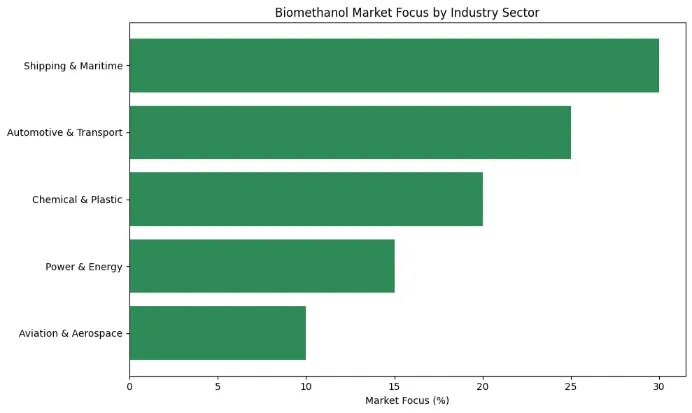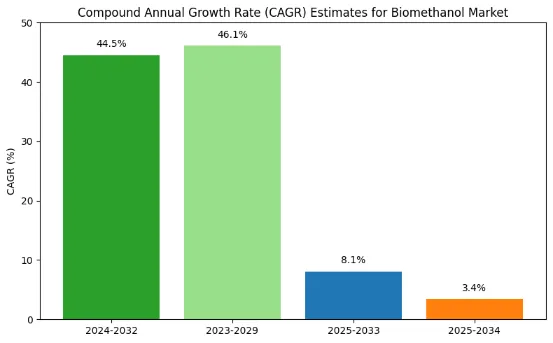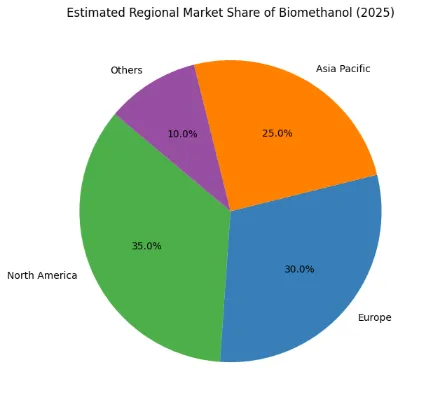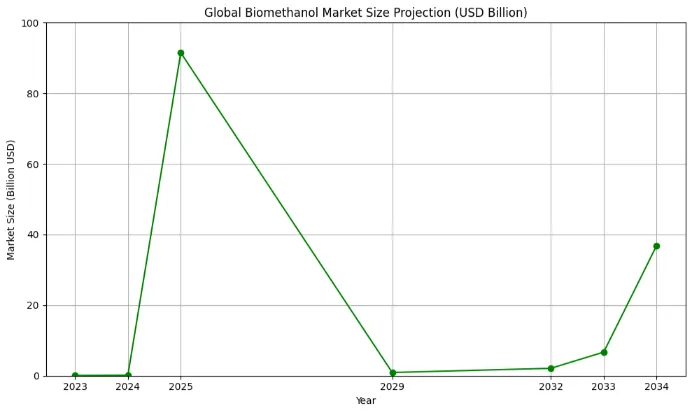
5 Companies Investing in Biomethanol
Driving the Future of Sustainable Energy
Biomethanol is rapidly gaining traction as a sustainable alternative to fossil fuels, offering significant potential to decarbonize industries that have traditionally been hard to abate. Several leading companies are making strategic investments in biomethanol production and technology, recognizing its role in the global energy transition.
This article explores five key companies—British Petroleum (BP), Maersk, WasteFuel, M2X Energy, and Glocal Green—that are pioneering investments and innovations in biomethanol to transform energy and industrial landscapes.
1. British Petroleum (BP)
BP is one of the most prominent energy companies actively investing in biomethanol as part of its broader strategy to become an integrated energy company with net-zero ambitions by 2050. BP’s commitment to bioenergy is highlighted by its recent $10 million investment in WasteFuel, a California-based biofuels company specializing in converting municipal and agricultural waste into bio-methanol.
Strategic Focus and Impact
Investment Leadership
BP Ventures led the Series B investment round in WasteFuel, aiming to accelerate the development of a global network of waste-to-biomethanol plants.
Global Expansion
The investment supports WasteFuel’s plan to build its first plant in the United Arab Emirates and additional facilities worldwide.
Strategic Collaboration
BP and WasteFuel have signed a memorandum of understanding to collaborate on optimizing bio-methanol production yields and economics.
Why BP’s Investment Matters
BP’s investment is a significant milestone in scaling biomethanol production and integrating it into global energy markets. By focusing on converting waste into low-carbon fuels, BP is addressing both waste management challenges and decarbonization goals, especially in hard-to-abate sectors like maritime shipping.
2. Maersk
Maersk, the world’s largest container shipping company, has been at the forefront of adopting alternative fuels to reduce its carbon footprint. Recognizing the potential of biomethanol as a marine fuel, Maersk has invested heavily in methanol-powered vessels and secured long-term supply agreements to support its decarbonization targets.
Maersk’s Biomethanol Strategy
Fleet Expansion
Maersk is expanding its fleet of methanol-fueled ships, which can operate on bio-methanol or renewable methanol blends.
Supply Chain Development
The company is actively collaborating with fuel producers and technology providers to establish a reliable supply chain for biomethanol.
Net-Zero Commitment
Maersk’s investments align with its ambition to reach net-zero carbon emissions by 2040, with biomethanol playing a crucial role in reducing emissions from maritime transport.
Industry Impact
Shipping accounts for approximately 90% of global trade and contributes significantly to global emissions. Maersk’s commitment to biomethanol fuels demonstrates the shipping industry’s shift toward sustainable fuel alternatives that are compatible with existing engine technologies and infrastructure.
3. WasteFuel
WasteFuel is a pioneering biofuels company focused on converting municipal and agricultural waste into bio-methanol using proven anaerobic digestion and methanol production technologies. The company’s innovative approach addresses two critical challenges: managing growing global waste volumes and providing low-carbon fuel alternatives.
Key Highlights
Waste Transformation
WasteFuel’s technology transforms bio-based waste into bio-methanol, a sustainable fuel that can replace fossil fuels in shipping and other sectors.
Global Expansion
The company plans to develop multiple bio-methanol plants worldwide, starting with a flagship facility in Dubai.
Strategic Investment
WasteFuel has attracted significant investment, including the $10 million from BP Ventures, which is helping scale production and optimize processes.
Role in Decarbonization
WasteFuel’s bio-methanol production is positioned to play a vital role in decarbonizing hard-to-abate sectors such as shipping, where electrification is challenging. The company’s projects contribute to reducing global greenhouse gas emissions by offering a renewable, scalable fuel solution.
4. M2X Energy
M2X Energy is an emerging player in the biomethanol sector, focusing on the development and commercialization of renewable methanol production technologies. The company leverages advanced catalytic processes and renewable feedstocks to produce biomethanol with a low carbon footprint.
M2X Energy’s Innovations
Modular Production
M2X Energy is developing modular and scalable methanol production units that can utilize diverse biomass and waste feedstocks.
Diverse Applications
The company aims to supply biomethanol for various applications, including transportation fuels, chemicals, and power generation.
Cost-Effective Solutions
M2X Energy’s technology emphasizes cost-effectiveness and environmental sustainability, targeting markets with strong renewable fuel mandates.
Strategic Importance
By focusing on flexible production technologies, M2X Energy supports the decentralization of biomethanol production, enabling local and regional supply chains. This approach helps reduce transportation emissions and supports energy security while advancing the circular economy.
5. Glocal Green
Glocal Green is a clean energy company dedicated to producing sustainable biofuels, including biomethanol, from renewable resources. The company integrates biomass conversion technologies with innovative process optimization to deliver low-carbon fuels for industrial and transportation sectors.
Glocal Green’s Contributions
Sustainable Production
Glocal Green develops bio-methanol plants that utilize agricultural residues and other biomass feedstocks.
Community Engagement
The company partners with local stakeholders to ensure sustainable feedstock sourcing and community engagement.
Emission Reduction
Glocal Green’s projects contribute to reducing dependency on fossil fuels and lowering greenhouse gas emissions in various sectors.
Market Position
Glocal Green is expanding its footprint by targeting emerging markets with abundant biomass resources, aiming to create sustainable energy ecosystems. Its investments in biomethanol production align with global climate goals and growing demand for renewable fuels.
Conclusion
The transition to a low-carbon future requires innovative solutions and strategic investments across industries. Biomethanol, with its versatility as a fuel and chemical feedstock, is becoming a critical component of this transition. Companies like BP, Maersk, WasteFuel, M2X Energy, and Glocal Green are leading the way by investing in biomethanol technologies and infrastructure that promise to reduce emissions, utilize waste resources, and support sustainable economic growth.
BP’s significant investment in WasteFuel exemplifies how large energy companies are embracing biomethanol to decarbonize shipping and other hard-to-abate sectors. Maersk’s fleet expansion reflects the shipping industry’s commitment to cleaner fuels. Meanwhile, innovators like WasteFuel, M2X Energy, and Glocal Green are advancing the technology and production capacity needed to scale biomethanol globally.
Together, these companies are not only transforming their own operations but also catalyzing a broader shift toward sustainable energy systems worldwide. As biomethanol production scales and supply chains mature, its role in achieving global climate targets will only grow stronger.




